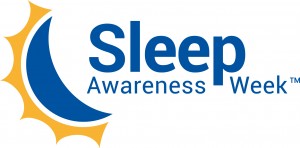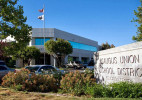The California Highway Patrol joins the National Sleep Foundation in observing National Sleep Awareness Week, March 6 to 12, to highlight the importance of drivers being aware of the potential dangers ahead of daylight saving time on March 13.
“Many people have a hard time adjusting to the time change, and it can affect their driving,” said Joe Farrow, CHP commissioner. “Even the most careful drivers become confused and use poor judgment when they are sleepy.”
Last year in California, sleepy or fatigued drivers were involved in 5,447 collisions,in which 40 people died. The National Highway Traffic Safety Administration conservatively estimates that 100,000 police-reported crashes are the direct result of driver fatigue each year, resulting in an estimated 1,500 deaths, 71,000 injuries, and $12.5 billion in monetary losses.
Cognitive impairment after approximately 18 hours awake is similar to having a blood alcohol content of .05 percent, research by the National Sleep Foundation has found. The NSF studies also show that after 24 hours awake, cognitive impairment is similar to a blood alcohol content of .10 percent higher than the legal limit in the U.S.
Two out of every five drivers admit to having fallen asleep at the wheel at some point, research by the American Automobile Foundation shows, with one in 10 drivers saying they have done so in the past year. More than a quarter of those surveyed said they continued to drive even though they had difficulty keeping their eyes open.
“The only safe driver is an alert driver,” said Commissioner Farrow. “We ask all California drivers to be alert, awake, and prevent crashes.”
The NSF recommends that individuals aged 18 to 64 get seven to nine hours of sleep a night. Stimulants like coffee, energy drinks, and lights from electronic devices all may interfere with natural sleep/wake cycles.
The mission of the CHP is to provide the highest levels of Safety, Service, and Security to the people of California.
Like this:
Like Loading...
Related



 Courtesy: Sleepfoundation.org
Courtesy: Sleepfoundation.org 
 Tweet This
Tweet This Facebook
Facebook Digg This
Digg This Bookmark
Bookmark Stumble
Stumble RSS
RSS




























REAL NAMES ONLY: All posters must use their real individual or business name. This applies equally to Twitter account holders who use a nickname.
0 Comments
You can be the first one to leave a comment.